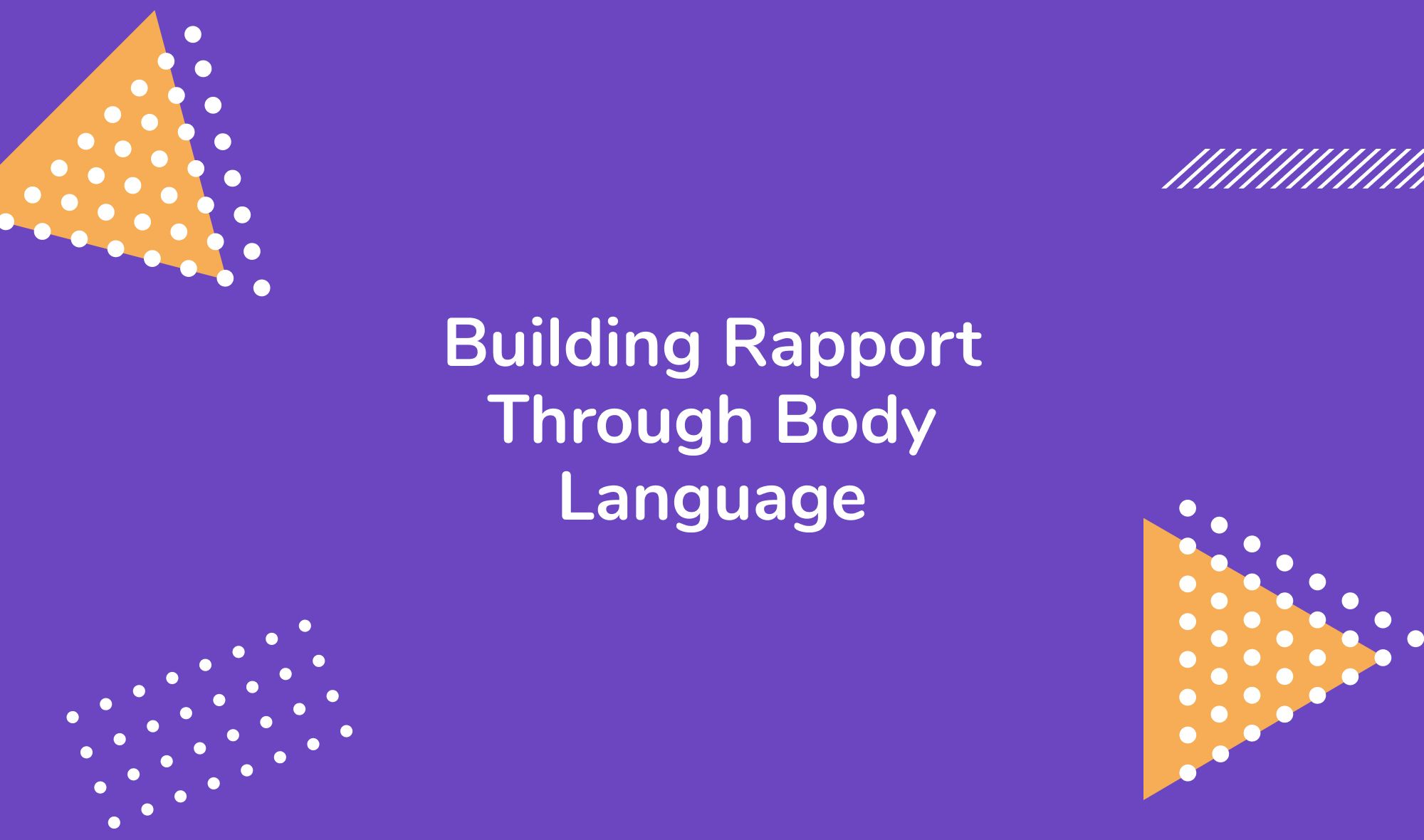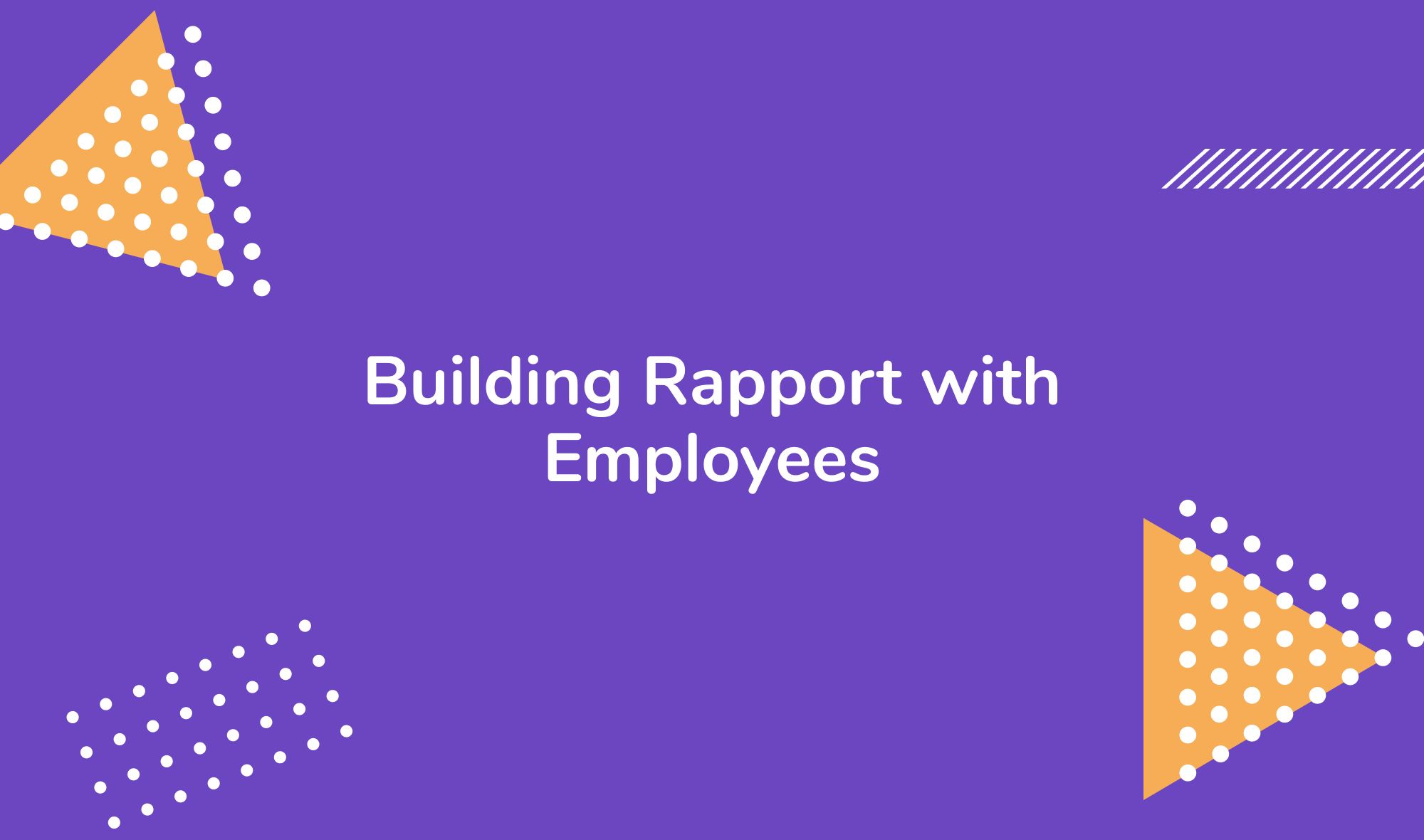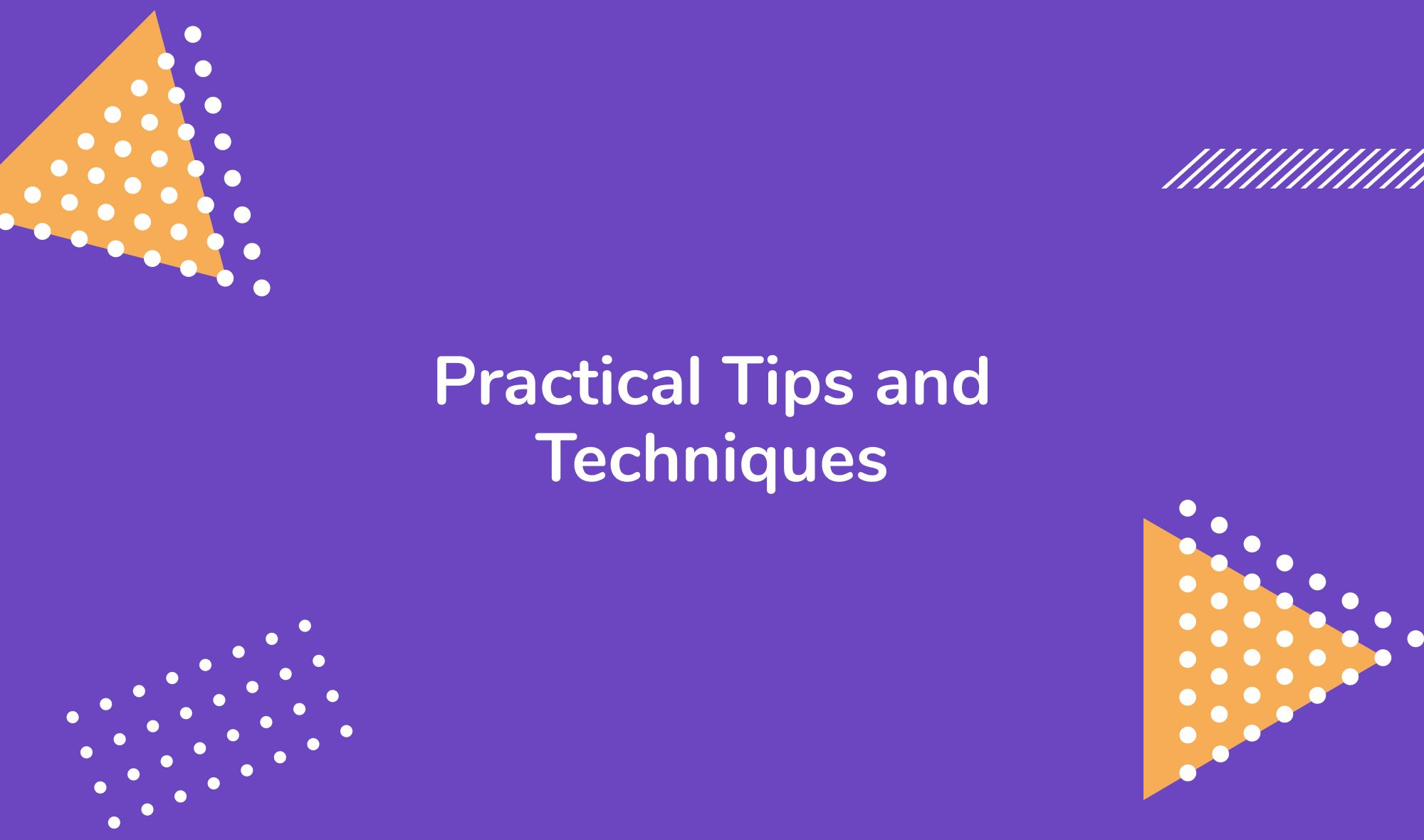How to Build Rapport: Enhancing Relationships in the Workplace
By Remy Meraz • July 27, 2023
Key Takeaways
- Building rapport involves active listening, understanding and utilizing body language, and employing emotional intelligence.
- Finding common ground and making small talk can be effective tools for building rapport.
- Building rapport is an ongoing process requiring continuous effort and genuine interest.
- Emotional intelligence plays a crucial role in building rapport and forming strong relationships.
- Rapport building is linked to professional success, with stronger rapport often leading to more effective collaboration and better outcomes.

Introduction: The Significance of Building Rapport
When it comes to establishing strong relationships in a professional setting, a secret weapon many great leaders possess is the ability to build rapport. But what does it mean to build rapport, and why does rapport matter so much in our professional lives?
Rapport isn't just a buzzword thrown around in team meetings or networking events. It's the foundation of effective teamwork and interpersonal relations. Building rapport is about more than just having a good relationship with your direct reports or colleagues; it's about creating a harmonious relationship with everyone you interact with in your professional life.
From facilitating more meaningful conversations to fostering a shared sense of purpose, establishing rapport can make a big difference in the work environment. If you've ever wondered why certain people seem to get along effortlessly with the same people you struggle to connect with, the secret might lie in their rapport building skills. It’s not just about what you say, but how you say it and how well you actively listen and respond to the other person's needs and perspective.
In this article, we delve into the world of rapport and uncover why building relationships and a solid rapport is vital to professional development. Furthermore, we’ll share actionable tips and techniques to help you build rapport effectively and establish meaningful relationships in your professional life. Read on to discover the power of rapport and why you should prioritize it in your professional relationships.
Join our Newsletter
Transform your career with our personal growth insights. Get one valuable tip right in your inbox every Saturday morning.
The Art and Science of Building Rapport
Unveiling the mystery behind how rapport works is akin to understanding the subtle art of communication and the complex science of human psychology. Rapport isn't established merely by sharing common ground or by being on the same sports team. It's more about understanding the other person's perspective, showing a genuine interest in their ideas, and maintaining a harmonious relationship through ongoing interactions.
According to psychological studies, the key to building rapport lies in active listening, a skill that involves fully focusing, understanding, and responding to your conversational partner. More than just a communication technique, active listening requires an individual to be an active participant, giving encouraging sounds or affirmations, paying attention to non-verbal signals, and asking follow-up questions. Active listening isn't just about hearing what is being said but understanding the underlying emotions and meanings.
When we talk about building relationships, it's important to note that it's about more than what meets the eye. Apart from common interests or experiences, creating a strong relationship requires empathy, emotional intelligence, and effective communication skills. It's about creating connections on a deeper level, turning small talk into meaningful conversations, and developing a shared sense of purpose and mutual trust.
Building Rapport Through Body Language

In the world of rapport building, your body often speaks louder than words. Non-verbal communication, which includes facial expressions, body language, and even the tone of voice, plays a crucial role in establishing rapport.
Our bodies often reveal what we don't say verbally. An open posture, a firm handshake, or steady eye contact can communicate that you're approachable, confident, and genuinely interested in the conversation. On the other hand, crossed arms, avoiding eye contact, or lack of facial expressions may signal disinterest or discomfort. By understanding and using body language effectively, you can create a more welcoming and friendly environment (discover more about non-verbal communication here).
Your body language toolkit should also include an understanding of facial expressions, eye contact, and the use of encouraging sounds. A warm smile can break the ice, while maintaining eye contact shows that you're paying attention. Similarly, simple sounds like 'uh-huh', 'mm-hmm', or even a subtle nod can show that you're actively listening and engaged in the conversation.
In summary, your body language is a powerful tool in building rapport and establishing meaningful connections. Learning how to use it effectively can greatly enhance your rapport building skills and overall communication effectiveness.
Join our Newsletter
Transform your career with our personal growth insights. Get one valuable tip right in your inbox every Saturday morning.
Active Listening: The Key to Good Rapport

Mastering the art of active listening can take your rapport-building efforts to a new level. Becoming an active listener involves more than just hearing the words that are spoken. It's about being fully engaged in the conversation, paying close attention to the speaker's words, tone of voice, and non-verbal cues, and providing thoughtful responses.
To become an active listener, follow these steps:
- Maintain eye contact: This shows the speaker that you're fully engaged in the conversation.
- Avoid distractions: Put away your phone or any other distractions that may hinder your concentration.
- Provide feedback: Summarize what you've understood to show the speaker that you're truly engaged.
- Show empathy: Recognize and validate the speaker's feelings or point of view.
- Ask open-ended questions: These invite the speaker to elaborate further, leading to deeper conversations (learn more here).
Building trust is another crucial aspect of good rapport, and this can be achieved through active listening and meaningful conversations. By showing genuine interest in what others are saying and responding thoughtfully, you communicate your respect for their ideas and feelings, which helps build mutual trust.
Active listening plays a pivotal role in establishing strong relationships, whether they're personal or professional. By actively listening, you show the other person that you value their thoughts and views, which can lead to a more profound connection (read more about this here).
Building Rapport with Employees: A Guide for Leaders

As a leader, building rapport with your team members is crucial for a harmonious work environment. Research has shown a strong link between employee engagement and rapport. Engaged employees are more productive, motivated, and committed to their work. And one way to boost employee engagement is by building strong rapport (learn more about this here).
To build rapport with coworkers, consider the following step-by-step process:
- Show genuine interest: Get to know your coworkers on a personal level. Find common ground, whether it's shared interests, experiences, or goals.
- Be open and transparent: Encourage open communication. Share information and be transparent about decisions and changes.
- Provide support and guidance: Be there for your coworkers when they need support or guidance.
- Encourage and recognize their efforts: Acknowledge their work and provide positive reinforcement to boost their morale (get more tips here).
Building team rapport is crucial for a harmonious work environment. When team members share a strong rapport, they communicate more effectively, collaborate more efficiently, and show greater respect and trust for one another. Just as rapport can be built within your team, it is equally important to have effective meetings, which provide a platform for communication and collaboration. As a result, the team is more likely to reach its goals and overcome challenges successfully.
The Role of Emotional Intelligence in Building Rapport

Emotional intelligence is a critical factor in developing strong and meaningful relationships. It's about understanding, using, and managing our own emotions in positive ways to relieve stress, communicate effectively, empathize with others, and overcome challenges. When it comes to building rapport, emotional intelligence is key.
Developing empathy, a cornerstone of emotional intelligence, involves understanding and sharing the feelings of others. By developing empathy, we can better connect with others on a deeper level, which is vital for building rapport. Empathy allows us to see the world from another person's perspective and respond in a way that resonates with their feelings and experiences (learn more about empathy here).
Emotional intelligence can create not just good rapport but great rapport, and subsequently, great relationships. When we understand and manage our own emotions and respond empathetically to others' feelings, we build a strong rapport that forms the foundation of great personal and professional relationships.
Practical Tips and Techniques for Building Rapport

Building rapport doesn't always come naturally, but with the right techniques, you can foster great rapport with nearly anyone you meet. Here are some practical tips to get you started:
- Small talk: While it may seem trivial, small talk is a powerful tool for breaking the ice and building rapport. A friendly chat about the weather, a recent sports game, or a shared interest can help establish a connection and set the stage for more in-depth conversations (learn more about the power of small talk here).
- Finding common ground: One of the most effective ways to build rapport is by finding common ground. Shared interests, experiences, or even supporting the same sports team can provide a solid basis for a meaningful relationship.
Building rapport is not a one-time task but an ongoing process that requires continuous effort and genuine interest. Maintaining a strong rapport involves actively listening, showing empathy, and consistently demonstrating that you value the other person's thoughts, feelings, and experiences. Keep in mind, rapport isn't about pretending to be someone you're not. It's about showing genuine interest in the other person and finding ways to connect on a mutual level.
Conclusion: Building Rapport – The Gateway to Success
Building rapport is more than a set of techniques; it's a mindset, an approach to life and work that emphasizes connection, mutual respect, and understanding. A strong rapport can form the foundation for effective communication, productive collaboration, and ultimately, professional success (learn more about the link between rapport and professional success here).
In this guide, we've explored why rapport matters and how to cultivate it. Remember, building rapport involves genuine interest, active listening, understanding and utilizing body language, and employing emotional intelligence. With consistent practice, you can turn these skills into habits that help you form stronger, more meaningful relationships.
You can find more about Zella Life's recognition by Google for Startups Latino Founders Fund to understand how Remy's work is recognized in the startup community.
Read more about: Professional Development
About Remy Meraz
Remy Meraz, co-founder, and CEO of Zella Life, is a visionary leader who leveraged corporate glass ceiling challenges as a woman of color to drive systemic change.
While leading and cultivating high-performance teams from VC-backed startups to Fortune 500, she consistently faced obstacles such as inadequate mentorship, lack of psychological safety, and non-personalized training. Taking matters into her own hands, she turned to executive coaching and NLP training. This life-changing growth experience led to breaking leadership barriers and a passion for cognitive psychology.
Motivated by her experiences, she co-founded Zella Life, an innovative AI-driven coaching platform bridging the talent development gap by enhancing soft skills and emotional intelligence (EQ) in the workplace.
Her vision with Zella Life is to transform professional development into an inclusive and impactful journey, focused on the distinct needs of both individuals and organizations. She aims to promote advancement and culture change by ensuring every professional's growth is acknowledged and supported.
Today, Remy is recognized as an influential innovator, trainer, mentor, and business leader. Under her leadership, Zella Life has delivered significant measurable outcomes for numerous well-known brands. This track record of positive outcomes garnered attention and funding from Google for Startups and Pledge LA, establishing Zella Life as a pivotal force in the learning and development arena tackling and resolving fundamental talent development issues for organizations of all sizes.